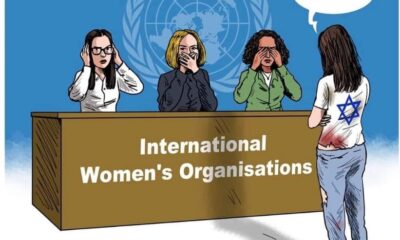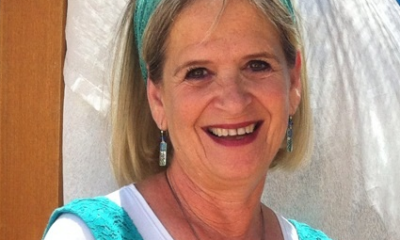
Community
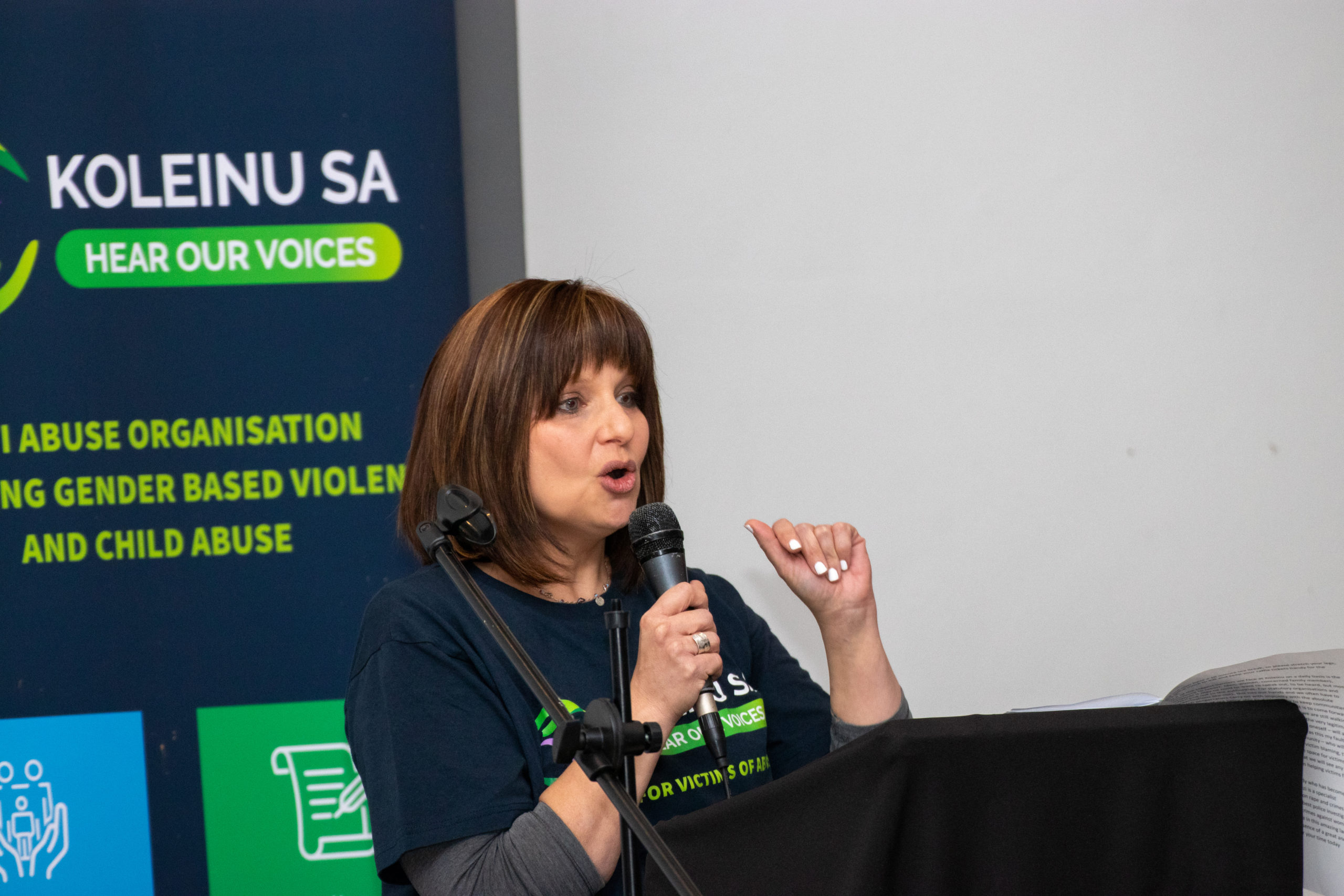
Leaving abusive partners “tough but empowering”
Published
2 years agoon
Walking away is the toughest but often the most empowering thing to do for a woman living with an abusive partner – and they don’t have to do it alone.
This is one of the lessons of the Koleinu SA and South African Union of Jewish Students Women’s Day Breakfast on 9 August.
Fear and a lack of self-esteem kept Jodi* trapped in a marriage defined by verbal and emotional abuse. “Recovery and making different choices is absolutely necessary for your survival,” she said sharing her story.
Very young when she met her ex-husband, Jodi said, “There were so many warning signs before we even married, but I chose to ignore them. I switched off my gut feelings.”
Forced to walk on eggshells, Jodi navigated a marriage in which her husband made her feel that nothing she did was right. “He never wanted to be near me when he came home from work,” she said. “He would point out my faults in front of family and friends. He would scream and get right up in my face.”
He tried to control Jodi’s behaviour, repeatedly threatening her with divorce if she didn’t conform. “When he finally asked for a divorce, it was sheer relief. I had wanted one for more than two years but was too scared to ask or share my story with anyone.”
Afterwards, instead of working on her feelings, Jodi became a workaholic and continued to believe she wasn’t good enough. Inevitably, her next relationship was abusive too, this time physically.
Jodi finally realised that if she continued on this path, she would die. “I knew I needed to heal and set boundaries for myself,” she said. “I’m no hero, but I’ve learnt who I am and who I’ll never be again. Manipulation and abuse will always be part of your partner’s story, but it doesn’t have to remain a part of yours.”
Mother, entrepreneur, women’s empowerment advocate, and author, Phindile Yende also got married in spite of the warning signs. “As women, we’re still marching this Women’s Day,” she said, “because we’re still having to fight for our freedom from our male counterparts.”
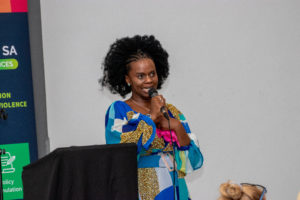
It’s a fight she experienced from the moment she met her former husband. “I grew up in a happy home with parents who loved me, took me to good schools, and wanted a great future for me. Yet, there was a moment where I totally forgot about that because I wanted to get married.”
Her ex-husband constantly cheated on her, had children with other women, and lied about being a doctor. “I couldn’t tell my family and friends the truth,” said a visibly emotional Yende. “I lived a lie for six years. My problem was having to admit my own insecurities.”
In time, she saw a psychologist who helped her realise that she was desperately seeking love from a man at any cost. “In our culture, our men are socialised to provide but they’re not taught to hug their baby girl and give her affirmation and reassurance.”
Koleinu SA co-founder Rozanne Sack said the degree of healing that comes with reporting one’s abuser is often overlooked.
A trailblazer in law enforcement who often collaborates with Koleinu SA, Detective Colonel Joyce Buthelezi, is a specialist in the investigation of rape, femicide, and crimes against women and children.
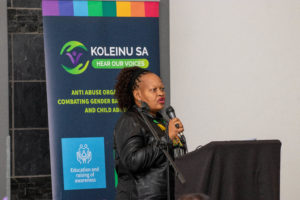
“We have a serious problem in our country,” said Buthelezi. “You may think nothing is happening, but we’re trying our best and we do arrest perpetrators.” Yet, often cases of rape and domestic abuse are reported too late, after the damage is done.
“Our cultures and religions are sometimes obstacles to fighting crime the way we want to,” she said. “For example, in my Zulu culture, if an uncle is raping his niece, it becomes the story of family. If a police officer comes in, they can get shot for doing what’s right. A teacher can put her life at risk by adhering the Children’s Act and reporting it.”
“Yet, our Constitution is on your side,” she said. “You have a legal obligation to report violence and abuse.”
Sack spoke of the cultural barriers to reporting in our own community. “We have the issue of shidduchim: will reporting this affect my marriage prospects or my children’s marriage prospects? Yet, by not dealing with your issues, you’re going into a marriage damaged. Rather come to people who will help you through the process and facilitate healing.”
Issues around lashon hara (derogatory speech about another person) and mesira – which means you don’t hand a Jew over to non-Jewish authorities – shouldn’t exist in this context, she added. “If a crime is committed, it has to go to the relevant authorities. This realisation will open a safe space for victims, to say, ‘I’m not destroying someone’s life, they did it to themselves. I’m going to stop this.’”
Advocate Carina Coetzee, a senior public prosecutor at the sexual offences unit of the National Prosecuting Authority, has had a front-row seat to cases of gender-based violence (GBV) since the 1980s. In spite of what many believe, she said, the government has done a lot. “When I started with GBV, I was in a desert, now I’m in a lush garden.”
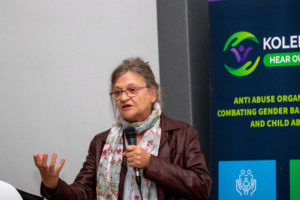
The fact that children and, more recently, women over 60 and men over 65, can testify with the help of an intermediary via an audiovisual link away from the courtroom means they don’t have to hear or see their perpetrators. This eases the anxiety around testifying, and encourages victims to press charges.
What’s more, said Coetzee, you can also now obtain a domestic-violence protection order online. Yet, she pointed out, when someone has been victimised their entire lives, they don’t know any different. You can never convince them they’re a victim, making reporting unlikely.
For victims and perpetrators, the positive input of just one person or one experience during their childhood can change the whole trajectory of their lives, Coetzee said.
*Surname withheld to protect identity.
Photo Credit: Adir Miller





